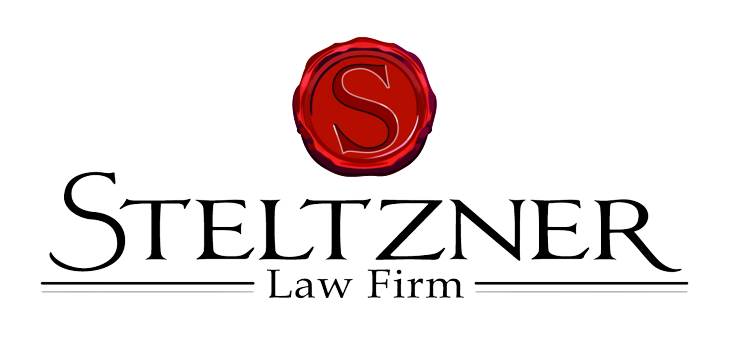Navigating Commercial Lease Agreements in North & South Carolina: A Comprehensive Guide
Handling commercial lease agreements in North and South Carolina requires a deep understanding of the complex terms, local regulations, and industry-specific provisions that dictate these contractual relationships. For business owners and commercial property owners alike, comprehending the intricacies of commercial leases is crucial to ensuring mutual agreement, protecting legal interests, and maintaining profitable working relationships. By mastering the art of navigating commercial lease agreements, you can achieve successful outcomes, empowering your business to thrive or your commercial property investment to flourish.
In this comprehensive guide, we’ll explore the fundamental aspects of commercial lease agreements in North and South Carolina’s dynamic property market, specifically focusing on common lease types, key provisions to scrutinize, negotiation strategies, and the importance of utilizing the expertise of a skilled real estate attorney. By familiarizing yourself with the complex yet rewarding landscape of commercial leases, you will be well-positioned to secure advantageous deals that benefit both landlords and tenants, fostering mutually rewarding relationships.
Common Types of Commercial Lease Agreements
Understanding the various commercial lease types used in North and South Carolina can help you determine which best suits your unique requirements:
- Gross Lease: In a gross lease, the tenant pays a fixed rent, while the landlord covers expenses such as property taxes, insurance, and maintenance. This lease type provides cost certainty for tenants but may not favor landlords if expenses rise significantly.
- Net Lease: A net lease requires tenants to pay a base rent along with additional costs, such as property taxes, insurance, and maintenance fees. There are three subtypes of net leases: single (tenant pays one of the expenses), double (tenant pays two out of three), and triple net (tenant pays all three).
- Modified Gross Lease: This lease type combines elements of gross and net leases. Both parties negotiate which expenses are to be included within the rent, offering a middle ground between landlord and tenant responsibilities.
- Percentage Lease: Typically used in retail spaces, percentage leases require tenants to pay a base rent plus a percentage of their revenue. This arrangement allows landlords to share in the tenant’s success while providing incentives for both parties to improve sales.
Key Provisions to Scrutinize in Commercial Lease Agreements
To secure favorable terms in a commercial lease, both landlords and tenants must examine critical provisions and negotiate accordingly:
- Rent and Rent Escalation: Ensure the base rent is competitive and accurately reflects current market conditions. Additionally, discuss rent escalation clauses to agree on reasonable and predictable rent increases during the lease term.
- Duration and Renewal Options: Discuss the lease duration and renewal options, focusing on flexibility and minimizing the risk of unforeseen circumstances impacting the long-term viability of the lease.
- Space Alterations: Evaluate the need for improvements or modifications to the leased space and negotiate the responsibility for costs and potential restrictions on alterations.
- Maintenance and Repairs: Clearly define each party’s respective responsibilities for maintaining and repairing the property, including regular upkeep, system repairs, and unexpected damages.
- Termination and Default Provisions: Understand the conditions and processes for terminating the lease and detail the remedies available in case of default by either party. Ensure the provisions strike a fair balance that protects both parties’ interests.
Negotiation Strategies for Commercial Lease Agreements
When negotiating a commercial lease, consider these essential strategies:
- Leverage Market Research: Utilize local property market data to assess comparable rent costs, vacancy rates, and lease provisions to strengthen your negotiation stance.
- Focus on Flexibility: Emphasize adaptable lease terms that accommodate both parties’ needs, allowing for adjustments to accommodate evolving business environments.
- Prioritize Key Provisions: Identify the most critical elements for your lease agreement, such as rent costs, lease duration, and tenant improvements, and concentrate your negotiation efforts on achieving favorable terms in these areas.
- Be Willing to Walk Away: Knowing when to walk away from a lease negotiation due to unfavorable terms can protect your business or property investment interests in the long run. Approach negotiations calmly and objectively, recognizing when it’s time to seek alternative options.
The Vital Role of a Real Estate Attorney in Commercial Lease Negotiations
A reputable real estate attorney can significantly impact your commercial lease negotiation success, offering essential support in various aspects:
- Contract Review and Drafting: Attorneys meticulously review proposed commercial lease agreements, ensuring that terms protect your interests, and draft contracts customized to your specific needs.
- Legal Guidance: Legal professionals provide invaluable advice and guidance on negotiating key provisions within the lease, preventing potential risks or pitfalls that may arise from unclear or unfavorable terms.
- Dispute Resolution: Real estate attorneys can efficiently resolve disputes or conflicts that may emerge during lease negotiations or throughout the lease term, protecting your interests and working towards fair resolutions.
Conclusion
Mastering the art of navigating and negotiating commercial lease agreements in North and South Carolina is essential to establishing successful, long-term relationships between landlords and tenants. Embrace the power of understanding and knowledge, supported by the seasoned expertise and guidance provided by the Steltzner Law Firm, LLC, to achieve exceptional outcomes in your commercial property ventures.
Dive into the rewarding world of commercial leasing, engaging with the intricacies of the North and South Carolina real estate market. With the foundational knowledge gained from this guide and the Steltzner Law Firm, LLC’s professional real estate attorneys in Rock Hill, SC, you’re poised to conquer the challenges of commercial lease agreements and savor the success of your business operations and property investments.
